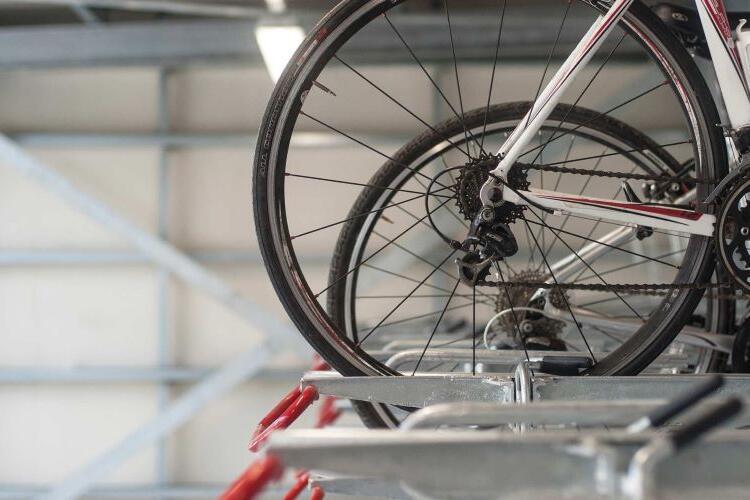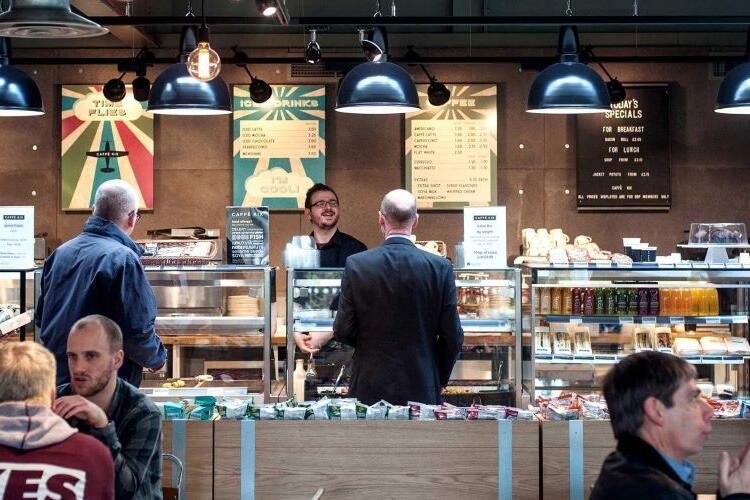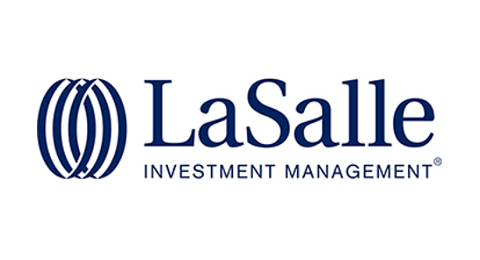LaSalle’s Bourne Business Park Boosts Biodiversity and Wellbeing
18 October 2019LaSalle’s Bourne Business Park Boosts Biodiversity and Wellbeing
18 October 2019For the final phase of Bourne Business Park, LaSalle has created two highly sustainable, energy efficient and flexible office buildings, along with a new café and extensive landscaping enhancements that are boosting biodiversity and contributing to occupier wellbeing. The scheme is 100% let, successfully attracting occupiers in a challenging market.
Key Facts
- BCO Best Commercial Workspace for South England and South Wales 2018
- CIRIA BIG Biodiversity Challenge Small Project of the Year 2018
- BREEAM Excellent sustainability rating
Situation
One of the world’s leading real estate investment managers, LaSalle Investment Management, believes that environmental, social and governance best practices enhance the performance of its clients’ investments.
Bourne Business Park in Weybridge is named after the River Bourne that flows along its boundary. The Park’s proximity to this river and a rich wooded landscape provide a unique setting for high quality office accommodation and amenities.
For the final phase of Bourne Business Park, LaSalle saw an opportunity to transform a fallow site into a new gateway. They set the project team the brief to create highly environmentally sustainable office buildings and improve the amenity offering and public realm, putting occupier wellbeing top of the agenda.
This led to the creation of two highly sustainable, energy efficient and flexible buildings, providing 8,660m2 of quality office accommodation, along with a vibrant new café and 6,500m2 of green space and landscaping enhancements that maximise wellbeing opportunities for occupiers and exceed planning requirements for ecology.
The project team included architects TP Bennett, main contractor Volker Fitzpatrick, project managers JLL, engineers Hoare Lea and Campbell Reith, landscape architects MacGregor Smith and ecology consultants ARC. They introduced a range of features set out in LaSalle’s Green Guide and piloted several new initiatives.
Actions
Biodiversity enhancements
-
New riverside garden blending formal landscaping with additional green space to create a shared environment for people and wildlife.
-
98 new trees planted, along with foodplant species, providing pollen, nectar, foliage, seeds and fruit, plus structural overwintering habitat such as hollow-stemmed plants and a new honeysuckle green wall.
- Nesting/roosting boxes installed along the river corridor for owls, woodland songbirds and bats.
- Sycamore-dominated canopy thinned, creating deadwood habitats. Dead elm cut back to create windows onto the river, opening up corridors for wetland wildlife such as hoverflies to feed and hunt along the flowering path borders, visible to occupiers. This also increased light to the river, improving conditions for freshwater biodiversity.
- Opposite riverbank bequeathed to the local council as accessible open space, extending biodiversity gains for the local community.
Additional health and wellbeing features
- 320m new running track and trim trail along the river and through the woodland.
- 92 cycle spaces, along with showers and changing facilities that exceed the BREEAM Excellent standard.
- Vibrant new café run by Caffe Kix, offering subsidised healthy food, breakout spaces and landscaped areas, open to all.
- Outdoor seating around the Park, creating new spaces for occupiers to socialise and enjoy nature.
- Good daylight levels indoors, with full-height glazing and open floor plates looking out to surrounding greenery.
- 300m2 roof terraces on each building that can host the full building occupancy for events, with views to the river.
- Organised wellbeing programme for employees.
Responsible energy and water management
- Air source heat pump system to minimise energy consumption. This system also recovers and reuses energy, reducing the requirement for large-scale gas fired boilers.
- 210m2 of photovoltaic panels at roof level to power external areas, delivering 32.75kWhr peak of electricity to the building.
- High performance glazing to minimise heat loss and gains through the façade whilst maximising natural daylight. Air tightness rating of less than 2.3m3/hour per m2 of façade, which exceeded industry standards and the project target of 5m3/hour per m2.
- Double-height brise-soleil screen both characterises the entrance pavilion and controls solar gain.
- Free to use electric vehicle charging points for occupiers.
- 10,600m2 permeable paving in car parking areas to minimise surface water shedding.
- Up to 8m ecological buffer zone along the River Bourne, providing biodiversity gains and contributing to best practice Sustainable Urban Drainage Systems (SUDS).
Financial
Financial benefits of the ecology initiatives could include reduced losses and maintenance costs in landscaping by choosing the right mix at the start and giving it room to settle into a self-sustaining design. Longer term financial benefits could also result from improved occupier engagement and satisfaction with the Park through wildlife encounters, natural space benefits and common cause for participation shared across occupiers, as everyone can get involved in making room for wildlife where they work and take some of those ideas home, too.
Benefits
- 100% let, attracting new occupiers in a challenging market: CHEP, Devonshire Business Centres, Mundays LLP, Orica UK and Schindler Lifts, achieving rents ahead of expectation.
- Contributing to customer satisfaction, with positive feedback from existing occupiers about the landscaping enhancements and new café.
- Multi-award winning, including BCO Best Commercial Workplace for South England and South Wales 2018 and CIRIA BIG Biodiversity Challenge Project of the Year Award (small scale) 2018.
- Achieving LaSalle’s sustainability objectives for the project, including BREEAM Excellent and Energy Performance Certificate (EPC) A for both buildings, and exceeding LaSalle’s corporate sustainability standards.
- Delivering biodiversity gains that exceed planning requirements. This includes the operational site team maintaining the formal garden areas and riverside woodland walk to further foster biodiversity after development activity has completed. For instance, thoughtfully scheduling mowing and trimming, and creating windows in the riverside tree cover as fly-throughs for damselflies into flower patches.
- 25% better carbon efficiency than Part L Building Regulations 2010.
Challenges and Achievements
BIODIVERSITY
How to maximise ecological and amenity value?
Prior to redevelopment, the brownfield site was surveyed and categorised as being of “low to moderate ecological value”. It had no mature trees, public access or recreational facilities. A landscape strategy was created to transform an impenetrable wooded area into thriving woodland, with healthy trees, varied habitats for wildlife and a trim trail for occupiers. Underused areas became landscaped green spaces, enhanced for biodiversity gain and for maximising opportunities for occupiers to enjoy nature and encounter wildlife. A locally important Schedule 1 species, kingfisher, has been heard within the site. LaSalle plans to carry out annual biodiversity audits to monitor key measures of ecological gain, such as species total, river dragonfly diversity, nest box use and riparian plant species. This will highlight further opportunities to improve conservation management. Bourne’s riverside garden is a new approach for LaSalle, which the team is exploring opportunities to replicate across its investment estate. It is also informing the development of LaSalle’s emerging European policy for biodiversity.
OCCUPIERS
How to engage occupiers in wellbeing initiatives?
At Bourne Business Park, the landscaping enhancements and new café have opened up new opportunities for the Savills site team to engage with occupiers on wellbeing and grow the community aspect of the Park. The site team is in regular liaison with occupiers, discussing ideas for wellbeing initiatives. As a result, there are now regular free exercise classes designed for people of all ages and abilities to enjoy, including yoga twice a week, power walking twice a week and boot camp once a week. Token hunts for prizes around the Park encourage fun exercise and exploring of the grounds. Monthly wellness markets hosted in Caffe Kix feature organic health and wellbeing gifts. For occupiers who cycle to work, there is a discounted bike maintenance clinic each month. There is also a vegetable plot and plans to introduce an allotment and an apiary with a webcam that occupiers can view anytime through the Park app, as well as monthly talks by expert beekeepers.
*Please note that the information on this page was supplied by the BBP Member and the BBP assumes no responsibility or liability for any errors or omissions in the content




